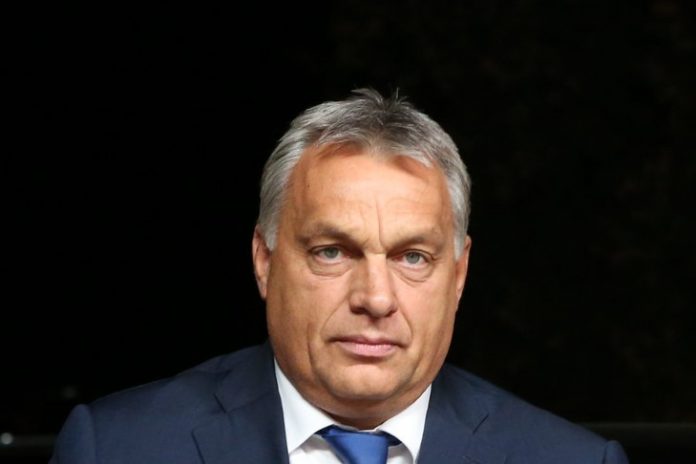During an informal meeting today called by the Austrian presidency of the European Council, MEPs outlined the Parliament’s grounds for triggering article 7 against the Hungarian government, which were conveyed to member states. They urge EU ministers to determine if Hungary is at risk of breaching the EU values and to invite the European Parliament to a formal Council meeting.
Ahead of the EU ministers meeting today, Civil Liberties Committee Chair Claude Moraes (S&D, UK) and MEP Judith Sargentini (Greens/EFA, NL) discussed the Parliament’s position on the rule of law in Hungary in a preliminary meeting with Member States representatives.
In September, the Parliament asked EU member states to initiate the procedure laid down in EU Treaty Article 7 to determine whether Hungary is at risk of breaching the EU´s founding values.
Mr. Moraes said: “Today together with the Rapporteur, Judith Sargentini, we were present for a first exchange of views in a preparatory briefing with Members States representatives – which however can in no way be considered a formal Council meeting.”
“We thank the Austrian Presidency for organising today’s meeting, and especially the Netherlands, Belgium, Greece and Sweden that were represented at ministerial level for their interest and cooperation. However, we have to emphasize that we await a more appropriate and formal Council meeting for handling a matter of the highest significance for the rule of law within the EU”, Mr. Moraes stressed.
Ms. Sargentini, who authored the Parliament’s report on Hungary, said: “An overwhelming majority of the Parliament supported my report in September. It is a clear signal that we must draw a line when it comes to breaches in a Member State of our shared European values of democracy, rule of law and fundamental rights. It is now to the Member States to act in a swift, open and effective manner.”
“The time taken by the Council to figure out the process does not improve the situation. To the contrary, new worrying developments have taken place in Hungary since the adoption of my report, such as a new law that would undermine the independence of the Hungarian judiciary even further”, Ms. Sargentini noted.
“At todays’ meeting, I appreciated the critical questions from the ministers on the situation of civil society in Hungary and on the way the Parliament and myself as rapporteur have been treated by the Hungarian authorities. We count on the support of the Member States present at this morning’s informal meeting to push for Parliament to present its report in a formal Council meeting”, Ms. Sargentini concluded.
Rule of law in Poland and Hungary are the first items on the agenda of the General Affairs Council meeting. Ministers will also hold the annual rule of law dialogue today.
Although the meeting itself was positive, leading S&D MEPs remain deeply concerned by the continued failure of the Austrian presidency to take meaningful action against the Hungarian government for consistent and sustained attacks on the basic principles of EU membership.
“In September, the European Parliament took the historic step of voting to launch Article 7 procedures against a member state. This was supported by an overwhelming majority in the European Parliament, spanning the political spectrum. The message was clear; Victor Orbán’s government could no longer flout the basic principles of EU membership without facing consequences. This message seems to have been heard across Europe but not by the Austrian government. Sebastian Kurz looks like he is doing a lot to stop real action being taken against the Hungarian government,” said S&D Group leader Udo Bullmann.
“The Austrian government, who holds the rotating presidency of the European Council, has attempted to restrict debates on the issue to informal meetings. When it was finally added to national ministers’ agendas, they refused to let the relevant MEPs attend – preferring to discuss the issue behind closed doors. This is not acceptable and confirms the concerns about the EPP’s affiliation,” he concluded.
Following to the request by the European Parliament from September, the Council may, acting by a majority of four fifths, determine the existence of a clear risk of a serious breach of the EU values in Hungary. The Council would first have to hear the views of the Hungarian authorities, and Parliament would need to give consent. The EU member states may also choose to address recommendations to Hungary to counter the risk.
At a later stage, the European Council may determine, by unanimity and with the Parliament’s consent, the existence in Hungary of a serious and persistent breach of the rule of law, democracy and fundamental rights. This could eventually lead to sanctions, such as the suspension of the voting rights in the Council.

